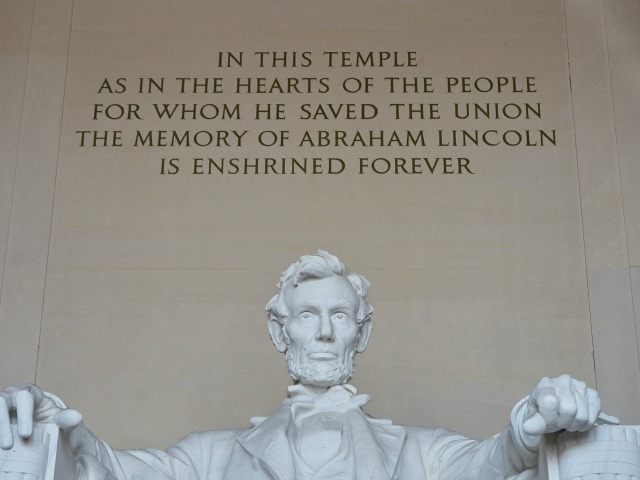This Saturday, February 27, was the 156th anniversary of Abraham Lincoln’s Cooper Union Address, which was delivered at Cooper Union, in New York City. It was the speech that launched Lincoln to the White House in the election of 1860; it was the speech that paved the path for a newly-formed Republican Party to take the White House for the first time, buoyed by its identification with the boldest and most unmistakeable principles.
Making the speech in New York City was a risky move for Lincoln, as it was a stronghold of his chief rival for the GOP nomination, William H. Seward. At that point in the race, Lincoln was a heavy underdog to lead the surging and strengthening Republican Party. But his lengthy speech defending the Constitution, the union, and the vision of the Founding Fathers catapulted him to victory in the most contentious election in American history.
The empty vessel of the old Whig Party had collapsed after the Compromise of 1850—which was in large part a concession to pro-slavery forces of the slave states widely praised at the time. As the nation began to unravel, new political factions and coalitions emerged.
For a while, it looked as though the Know Nothing, anti-immigrant party was on track to become the second major party in America, in opposition to Democrats. This party, which thrived alongside the organization of various secret societies, was ultimately defeated by the Republicans, who outmaneuvered and subverted them. The Republican Party ultimately prevailed because its leaders stood on principle, regardless of temporary popularity. The Know Nothings disappeared nearly as fast as they shot to power.
Former Whigs and Democrats who had fought politically their whole lives—yet were nonetheless united in defense of the Constitution—joined forces in this new Republican coalition. They were united in the belief that the ideas of the founding were fundamentally good and just. America could be great only if it embraced the philosophy that brought it into being.
Lincoln unhesitatingly defended these ideas at Cooper Union as he brilliantly and eloquently positioning himself as the leader of their movement. He answered the critics who claimed that his supporters were too radical and should cave to the “slave power” of the Southern states. Lincoln claimed that far from radical, a defense of the country’s founding principles was a conservative position.
“We stick to, contend for, the identical old policy on the point in controversy which was adopted by ‘our fathers who framed the Government under which we live;’ while you with one accord reject, and scout, and spit upon that old policy, and insist upon substituting something new,” Lincoln said. “True, you disagree among yourselves as to what that substitute shall be. You are divided on new propositions and plans, but you are unanimous in rejecting and denouncing the old policy of the fathers.”
During the war, the Republican Party was a bulwark against the Confederacy of slave states, which could no longer tolerate a president who stood against slavery on principle. It is clear that the unrelenting, principled, stand Lincoln made at Cooper Union animated and fueled the unionists to victory.
The final line of Lincoln’s great speech gave hope to the battered forces of the Union and the Constitution in 1860—as they should always give hope to patriots who believe in American exceptionalism: “Let us have faith that right makes might, and in that faith, let us, to the end, dare to do our duty as we understand it.”

COMMENTS
Please let us know if you're having issues with commenting.